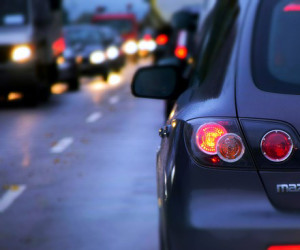SHORTER DAYS AND LONGER NIGHTS
 As the leaves begin to change and the beautiful colors start to appear, it also becomes apparent that days are growing shorter and the nights are getting longer. For some Americans this means that they may struggle to see – particularly at night.
As the leaves begin to change and the beautiful colors start to appear, it also becomes apparent that days are growing shorter and the nights are getting longer. For some Americans this means that they may struggle to see – particularly at night.
If you find you are becoming afraid to hit the road after dark because you struggle to see, now is the time to let your eye doctor know. The answer may be as simple as a pair of glasses, or it may mean that you need to get your cataracts taken care of. In any case, it is important to speak with your eye doctor to make sure there isn’t a more serious underlying issue.
Cataracts are one of the leading causes of night vision problems. As you age, cells grow and die behind your pupil. When the debris from dead cells builds up, it starts to cloud your vision. While cataracts are not painful they do make it difficult to see, especially at night. Cataracts are easily treatable and once removed you will find your night vision improves but also your vision in general may change.
A lack of Vitamin A may also be a reason for struggling with night vision. Vitamin A is found in carrots and leafy vegetables. It helps to keep the retina, the back of your eye where images are focused, healthy. Many Americans get enough vitamin A in their regular diet – that’s one of the reasons we always talk about a well-balanced diet. However, those with health problems such as celiac, gastric bypass or Crohn’s disease, may have problems absorbing the nutrients they need.
If you have recently been on a beach vacation, you might feel as though your vision is worse at night. This is more than likely correct as sustained bright sunlight can worsen night vision for up to two days. One way to avoid this is to wear sunglasses with UV protection. The wrap around style is best.
Regardless of why you suffer night vision loss, it is always a good idea to consult your eye doctor. While some forms of night vision loss may be permanent, there are several kinds that are treatable. If you do have difficulty seeing at night, be sure to clean your car windows and headlights before heading out for a night drive. As the leaves begin to fall, also remember the pavement becomes slippery when wet so give yourself extra room between you and the vehicle in front of you.
If you have questions about night driving or any other vision related issue, give our office a call at 724-443-6767 or 724-226-0444.
About the author: John D. Bissell, owner of Bissell Eye Care and Tri-State Low Vision Services, offers comprehensive eye examinations for the entire family, ocular disease detection and treatment, eye glasses, sun glasses, active wear, contact lenses, and low vision examinations for those with significant vision loss. He has undergone specialized training for treatment of low vision by the International Academy of Low Vision Specialists utilizing customized telescopic eyeglasses, prisms and telescopic implants for patients who qualify. The practice accepts most types of vision and health insurance plans.
